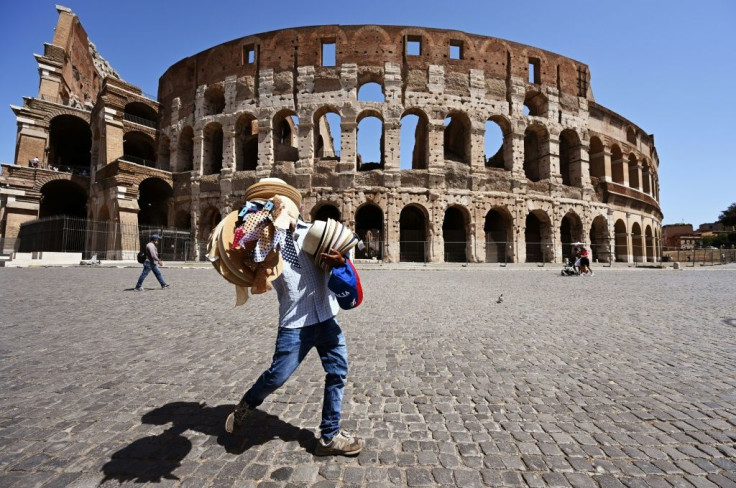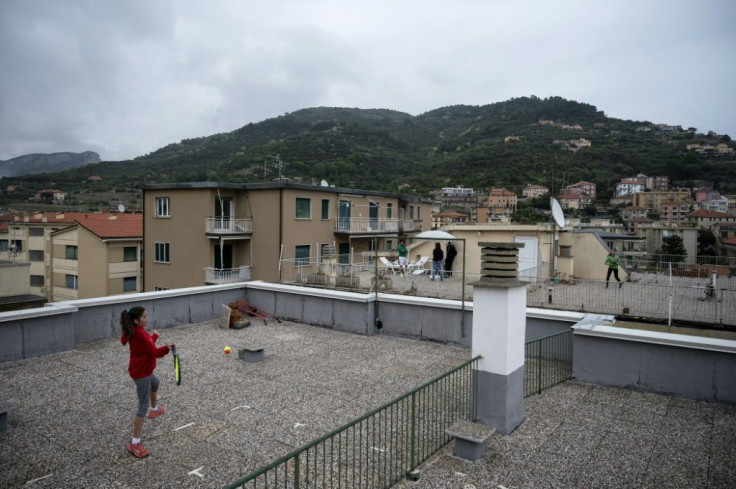Battle For Italy's Far-right Crown In Tuscany-led Elections

Italians head to the polls this weekend, despite a coronavirus resurgence in Europe, for a referendum and Tuscany-led regional elections which analysts say could change the face of the far-right.
It will be the first test for Prime Minister Giuseppe Conte's centre-left coalition government since the Covid-19 outbreak and the economically-crippling nationwide lockdown that followed.
"A landslide for the right would push the government in Rome into disarray," Berenberg analyst Florian Hense told AFP.
It could also mark the destiny of far-right League head Matteo Salvini, launching the opposition leader back to stardom should his party snatch the left-wing bastion of Tuscany, or handing his challengers the ammunition to replace him should it lose.
Voters in face masks will cast their ballots on Sunday and Monday, despite the country's top infectologists warning that opening polling stations when Covid-19 case numbers are on the rise is "madness".
Italy was the first European country to be devastated by the virus, which has officially killed over 35,000 people and infected nearly 300,000 nationwide.
While it currently has fewer new cases than Britain, France or Spain, they still number over 1,000 daily.

The regional elections will be held in Campania, Liguria, Marche, Puglia, Tuscany, Valle d'Aosta and Veneto.

Between the national election in early 2018 and the Covid-19 outbreak, the right has taken over in 8 out of 9 regional races, partly due to the left's inability to unite behind a single candidate. Experts warn of a repeat at this vote.
The most high-profile battle is for Tuscany, which has been ruled by the left for 50 years.
The last polls before a pre-vote blackout showed a tight race, with the underdog candidate for Matteo Salvini's far-right League gaining ground.
MEP Susanna Ceccardi, who has adopted Salvini's "Italians first" mantra, held 41.5 percent of voter intentions, compared to 43.7 percent for rival Eugenio Giani from the centre-left Democratic Party (PD), according to polling firm YouTrend.

The left is expected to hold onto Campania in the south, but the right-wing coalition of Salvini's League, Giorgia Meloni's far-right Brothers of Italy and ex-prime minister Silvio Berlusconi's Forza Italy partner may well snatch neighbour Puglia.
The right is set to win by a long way in its strongholds of Veneto and Liguria, as well as taking the Marche from the left.
Losing the Marche and Puglia would be a blow to the left, but even if it should lose Tuscany too, "I don't think it would topple the government", Franco Pavoncello, political science professor at the John Cabot University in Rome, told AFP.
Political commentator Barbara Fiammeri for Italy's Sole 24 Ore daily agreed, but said the results "could decide the destiny of the leaders", including PD chief Nicola Zingaretti and PM Conte, but particularly Salvini and Meloni.
"The Tuscany contest will be decisive for Matteo Salvini," whose popularity has waned during the pandemic, she told AFP.
If the League wins "his star will shine once more and no-one will question his leadership. It would a sensational result.
"But if he loses, and Meloni's candidate wins in the Marche and Puglia, Meloni could present a serious challenge," she said.
The referendum is on slashing the number of members of parliament -- from 630 to 400 in the lower house, and 315 to 200 in the upper house -- and is expected to pass, though to little fanfare.
The cost-cutting reform is the brainchild of the co-governing Five Star Movement (M5S).
While its centre-left coalition Democratic Party (PD) partner and parties on the right are theoretically in favour, their support has been lacklustre at best.
The latest polls suggested support for the 'no' vote was growing, but the likely low turnout would probably favour the 'yes' vote.
A disappointing result on the referendum could make an already poorly-performing M5S, which has a strained relationship with the PD, "even more nervous, and an even less unreliable coalition partner", Hense said.
© Copyright AFP {{Year}}. All rights reserved.





















